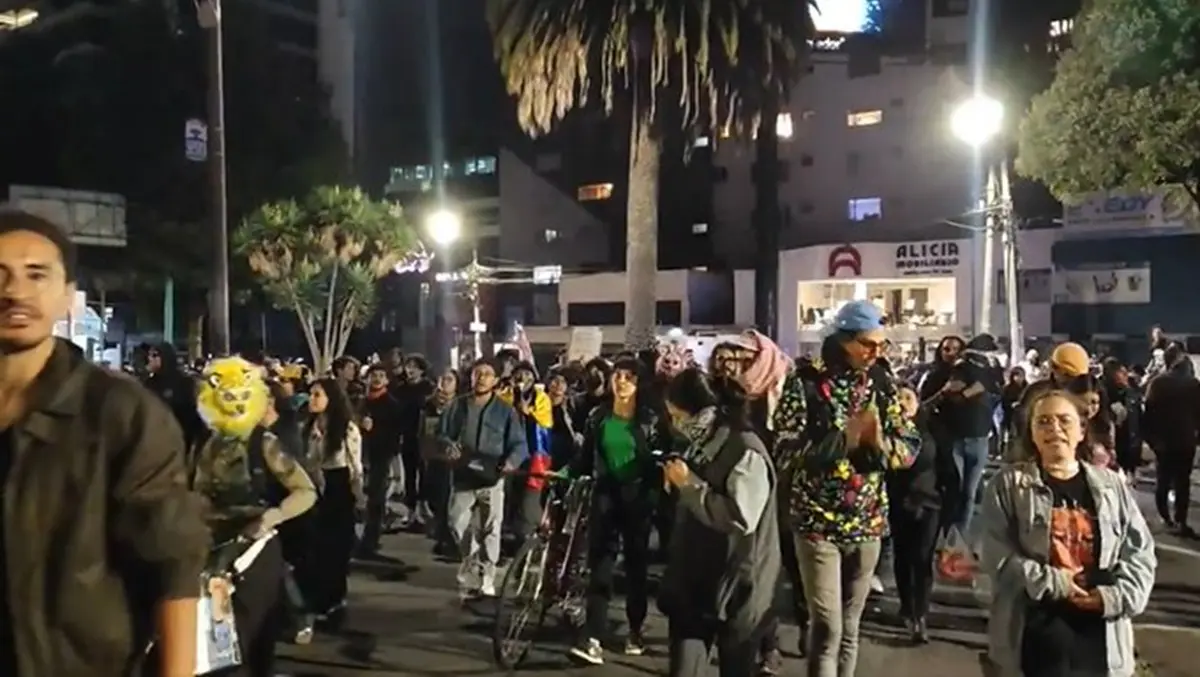Protests grow over fuel prices as President Noboa’s family clears multimillion-dollar tax debt.
On Thursday, Ecuadorian workers marched in Quito to demand an end to what they described as excessive force and violence by the National Police and Armed Forces during protests against President Daniel Noboa.
RELATED:
Ecuador’s Indigenous Movement to Define Next Steps in National Strike
“Assassin,” “Noboa, out!” “This government is blood, misery, and oppression,” and “They take away the subsidy and nobody says anything,” were among the chants heard during the march, which began at the Defense Ministry and ended at Theater Square.
“We are here in front of the Defense Ministry demanding that the military protect the Ecuadorian people. It is unjust for them to use disproportionate force against those who are protesting. We are ordinary people, not terrorists or criminals. The Armed Forces have dedicated themselves to repressing the people while organized crime continues killing citizens,” said Isabel Vargas, president of the Quito Neighborhoods Federation.
For the past 12 days, Ecuador has been engulfed in demonstrations and mobilizations led by the Confederation of Indigenous Nationalities of Ecuador (CONAIE), which called for a rejection of the elimination of the diesel subsidy.
So far, security forces’ actions have left one Indigenous community member dead, around 50 people injured and more than 100 demonstrators detained, including a dozen placed in pretrial detention on allegations of being “terrorists.”
Noboa Family Business Clears Tax Debt
The CONAIE-led protests have spread to six of Ecuador’s 24 provinces, mainly in the Andean highlands. Imbabura province has become the epicenter of the largest and strongest demonstrations.
Amid widespread social discontent, President Noboa’s family, one of the country’s most powerful business groups, announced that its debt with the Ecuadorian state had been reduced to zero.
The Noboa Banana Exporting Company had owed about US$95 million to the Internal Revenue Service (SRI). That amount was reduced over recent months until it disappeared completely.
“The Armed Forces and the Police cannot be accomplices of an administration that privileges its family and economic elites, even forgiving itself millions of dollars,” said Kleber Hidalgo, president of the Pichincha chapter of the National Union of Educators (UNE).
Vargas demanded the repeal of Decree 126, which sets the new diesel price, arguing it fuels “extreme poverty” while the president’s family “does not return the millions of dollars forgiven by the SRI.”
The elimination of the diesel subsidy has long been a sensitive political issue in Ecuador. The Indigenous movement previously led mass protests in 2019 and 2022 that forced presidents Lenin Moreno (2017–2021) and Guillermo Lasso (2021–2023) to back down from plans to remove fuel subsidies.


